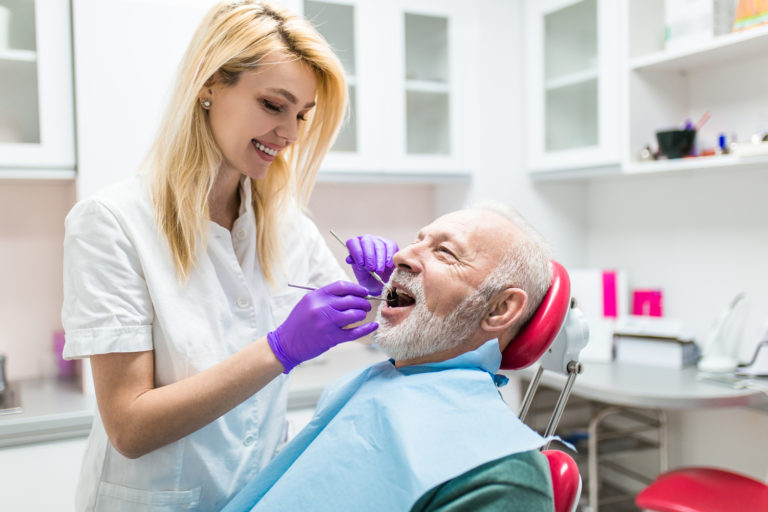Being mindful of your daily habits, using the right oral care products, and taking the necessary steps to care for your teeth are all crucial to preventing cavities and other dental problems. Here’s how you can care for your teeth.
Brush Your Teeth Before Bed
It may sound obvious – but a lot of people forget to brush, let alone floss at bedtime. If you aren’t doing it already, this should be your first step in taking better care of your pearly whites – it gets rid of the germs and plaque that accumulate throughout the day.
Take Your Time To Brush Properly
Doing a poor job of brushing your teeth is just as bad as not brushing – it can lead to plaque buildup and gum disease. Move the toothbrush in gentle, circular motions and make sure you’re reaching all the corners!
Use A Fluoride Toothpaste
Make sure you choose a toothpaste that contains fluoride over a toothpaste in your favorite flavor. It fights germs that cause tooth decay and creates a protective barrier around your teeth.
Floss Once A Day
Treat flossing like you treat brushing – besides getting out those annoying particles of food stuck in between your teeth, it also stimulates the gums, reduces plaque, and helps lower inflammation. Ready-to-use dental flossers and other tools can help make flossing easier for young children and older adults with arthritis.
Don’t Forget To Use Mouthwash
Rinsing with mouthwash reduces the amount of acid present, cleans hard-to-brush areas, and remineralizes your teeth. They are useful as an adjunct tool, especially for children and older people.
Drink More Water
Drinking water after every meal can reduce the negative effects of sticky, acidic foods, and beverages.
Eat The Right Foods
Eating crunchy fruits and vegetables, especially at a younger age, strengthens your jaws and teeth. You should also try to avoid sugary and acidic foods that erode the enamel of your teeth and cause cavities.
Visit Your Dentist Often
Even people who brush and floss dutifully need to see a dentist for cleanings and checkups twice a year. Doing this ensures that any potential issues are spotted in time and you can receive preventive care or primary treatment.

Comments are closed.